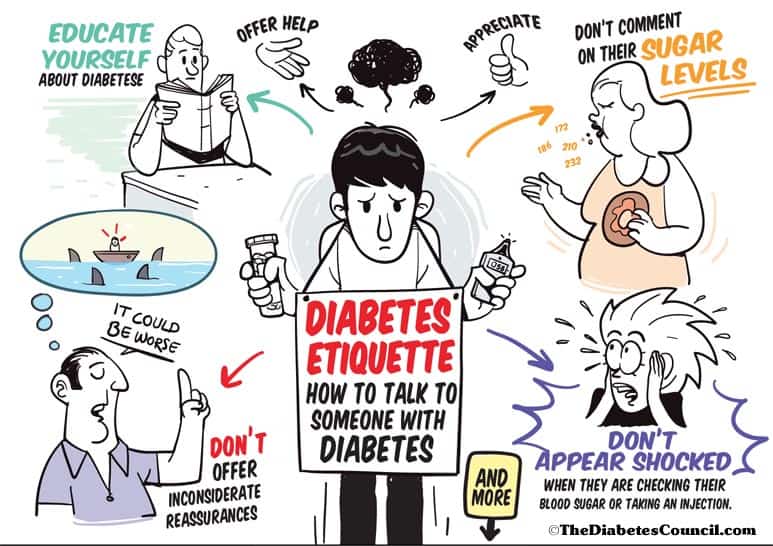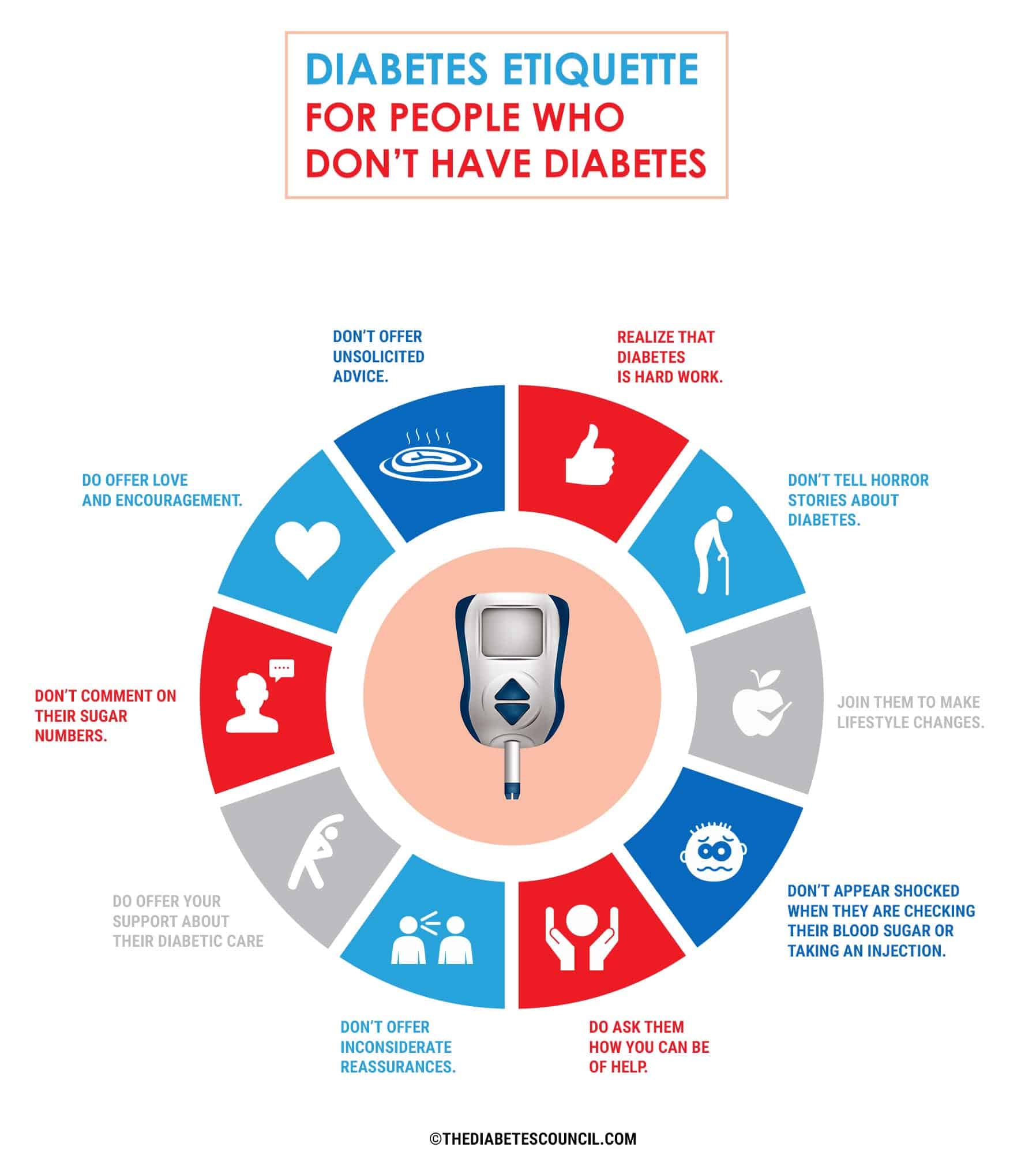
When you live with a chronic illness like diabetes, living life sometimes can seem hard. The constant monitoring of your blood sugar, weighing and counting all your food can seem time consuming and overwhelming. Not to mention the constant worry about complications lingering in the back of your mind. The stress alone of living with diabetes can be exhausting.
Then you have this amazing day where everything seems to be going your way. Your blood sugars have been steady all day and you’re about to sit down for a lunch out in public and someone sees your insulin pump. Or you excuse yourself to go give an injection and someone see’s your syringe. Or maybe you refuse the office birthday cake and say “No Thank you, I have diabetes”.
From here you can cue the typical responses:
- “Do you have the bad kind of diabetes?”
- “You’re not fat, you don’t have diabetes”
- “You don’t look sick”
- “Oh, it’s just diabetes, at least it’s not cancer”
- “You’ll be fine you just need to lose weight”
- “You did this to yourself”
And so on and so on.
You’ve probably heard these all before or it might be new to you, either way it won’t be the first time you hear phrases like these when someone hears about you having diabetes. In a more perfect world, everyone would know everything there is to know about diabetes, but unfortunately that isn’t the case in our world. There are too many different stereotypes that exist when it comes to diabetes. Most of which perpetuate the myths between type 1 and type 2.
This article isn’t about how to handle these comments, people with diabetes are very strong and have thick skin. These are the types of things we get used to.
This article is for those that may not understand what it’s like to be in our shoes. It is to shed some light on how you should speak to someone that has diabetes.
When Someone Tells You They Have Diabetes
There are some dos and don’ts to follow when someone expresses to you that they have diabetes:
DON’T offer inconsiderate reassurances. Phrases like “Well it could be much worse!”, don’t make them feel better. That message comes across that diabetes isn’t really that big of a deal when in reality it is.
DON’T offer advice about their eating habits or diet. You might think you mean well when you are handing out this advice, but when it’s not requested, it’s not really that nice. Many of the common thoughts about diabetes and eating are out of date, so you will just seem rude and ignorant.
DON’T tell horror stories that you’ve heard about diabetes. (i.e. your grandma’s cousin’s neighbor lost their leg because they ate a ton of sugar), this is definitely not helpful. People with diabetes are well aware of what could possibly happen if they don’t manage their diabetes well. They don’t need you to bring it up to their face.
DON’T appear shocked when they are checking their blood sugar or taking an injection. It’s not really something they are looking forward to doing, it’s just something they must do to, you know, stay alive. When they are forced to hide it because people act shocked and disgusted over and over, it only makes doing so much harder.
DO take the time to educate yourself about diabetes. That way you can help to educate others that may make the above comments when you are with your friend or family member.
DO offer your support about their diabetic care. It’s important to honor any decision they make about a food choice, even if it’s something you really want them to taste. When they are trying to avoid extra carbs, temptation doesn’t really help, it only adds fuel to the fire.
DO appreciate the hard work and dedication that people with diabetes have to put in each and every day just to stay alive. It’s a 24/7 disease that they cannot take a break from, and having someone that appreciates all they do can really help.
DO ask them how you can be of help. There are a ton of little things they probably could use your help with but don’t want to ask.
Additional articles you can reference:
DO offer them encouragement and love. This is one of the most important ones you can do. Managing diabetes on a day to day basis can take a lot out of you, so knowing that there is someone that cares can make someone’s day just a little brighter.
If you are a PWD (Person with Diabetes) you understand how frustrating it can be at times when people who aren’t familiar with diabetes say something uneducated and rude to you. This article is here to help aid those that don’t understand on how to talk when they are around you or others with diabetes.
TheDiabetesCouncil Article | Reviewed by Dr. Christine Traxler MD on June 01, 2020





